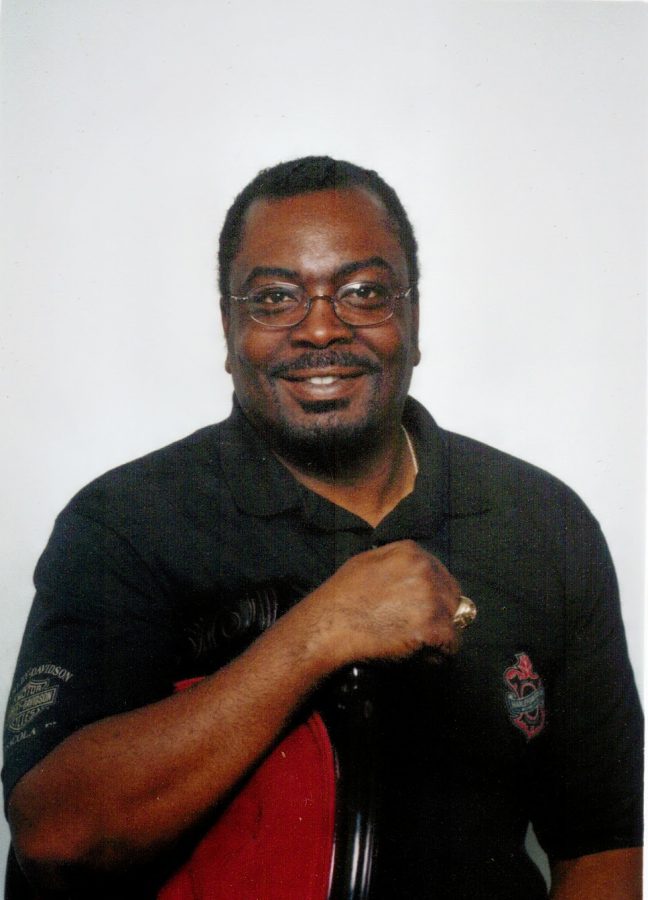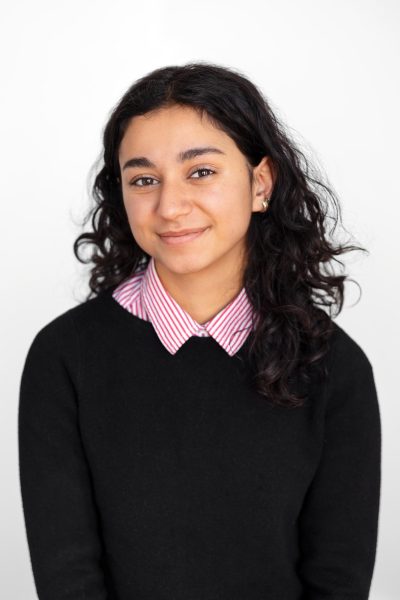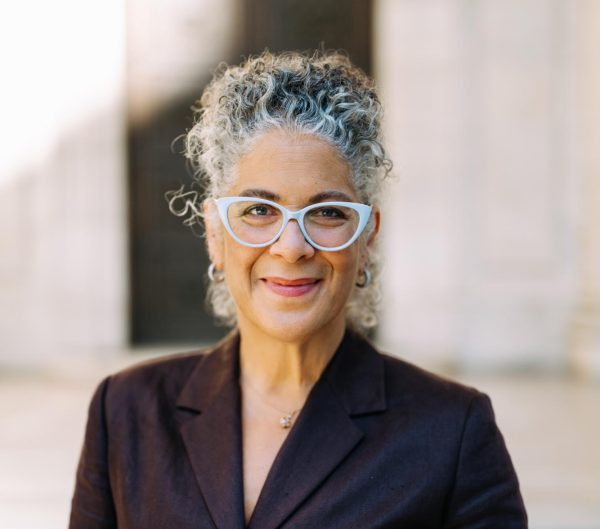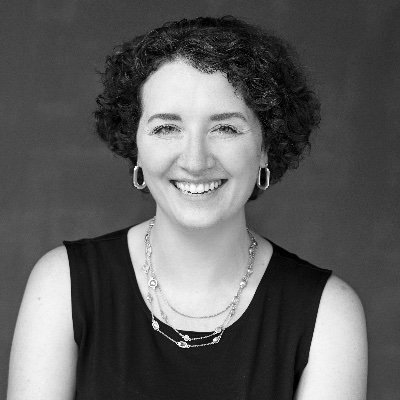OTC: Tyrone Wicks, S & S Officer
Tyrone Wicks
Tyrone Wicks is an officer with the Oberlin College Office of Safety and Security. He has been in his position for just over a year. The Review sat down with Wicks to discuss the highlights and challenges of his job and what it’s like to be a Safety and Security officer on campus.
This interview has been edited for length and clarity.
How and why did you start working for Safety and Security at Oberlin?
Well, I was born and raised here. This is my hometown, so I’m back in my hometown after I’ve lived in Florida and Texas. I started out in 1978 as a police explorer at the Oberlin Police Department when they started that, and that’s something that’s in conjunction with the Boy Scouts of America. It’s a coeducational opportunity that exposes you to different types of careers, and I actually did pursue that. After a stint in the military and some other things, I actually did go into law enforcement full time. I retired from there, moved to Texas, and now I’m back here, and I work at Safety and Security.
What are your favorite and least favorite parts of your job?
I think my favorite part of the job is just getting around the campus. Oberlin has a really gorgeous campus, especially at night. I think the least favorite part of my job is when we have to deal with some pretty tough issues for students, and we have to make some decisions that may not be popular for us or for the students, but they actually have to be done.
Do you have an examples that you’re able to share of times that have been tough?
I think dealing with students that are having a really difficult time, and not being able to provide the type of support that I think they probably need because of extraneous circumstances that I have no control over, and not being able to provide the level of support that would really be great for the students. I think that’s something the College sometimes wrestles with as well. How do we provide the maximum amount of support for our students?
What is your best story from your time at Safety and Security?
I think it’s some of the things that students try to cook and the way that they try to cook them. We live in an era of YouTube where you can probably learn almost any skill you want, and I think some people don’t actually try. We’ve had students try to make baked bread in microwaves and just things like that that are just harmless activities. It does cause a hoopla because you got fire alarms and all that other stuff. Generally they’re harmless activities, and they’re hilarious. The students have a laugh once you get them to calm down and say, “No, you’re not in any trouble. These are the kinds of things that happen.” That kind of thing is really funny and seeing students grow and learn and take some of the missteps that we took as kids is something we can all sit around and laugh about and think about. This is a great memory that you’re going to take forward, and someday you and some of the other alumni are going to sit around and laugh about these times, and it’s going to be really exciting. A lot of students get upset about that, and I tell them about the time that I was in college, and I actually did something that dropped out the power for a whole city block. So I say, “Once you top that, you can talk to me — but right now I think you’re in good shape.” I say, “As you can see I came out OK, so this is not a life-ending activity. This is just a small speed bump in the way. It’s part of really amazing experiences that you’re going to share later on with family and friends and your children.”
I think there is inevitably going to be a somewhat mixed response to any security enforcement on a college campus. If you could say anything to Oberlin students from the perspective of Safety and Security, what would that be?
I would say that we’re not a “gotcha” organization. We really seek to provide support. Even though we do have to provide documentation and reporting in a lot of instances, our main goal is to provide support, and we want to support our students in any way that we possibly can. I think when you’re in that type of role, one of the most exciting things to Safety and Security officers is when you are able to convince students that that’s where you’re at, so that they can feel comfortable in sharing things with us and knowing that we are an educational institution and that is a growing experience for you. Seeing random students who now feel like you’re not a “gotcha” organization, because we’ll walk through a quad, and students who don’t know you will high-five you or wave, to me is probably one of the most exciting things that you have — when students are that comfortable and feel like they can advocate for themselves comfortably and not feel like you’re going to be oppressive or there is only going to be a one-way conversation, I really enjoy my conversations with students.
One of my favorite situations like that where I can provide an example is we have a student who plays trumpet. Late one night I was closing up the Conservatory and he was in the last room practicing, so I went to tell him that he had to leave and he said, “Well, you know, I was just trying out some jazz.” He’s training in classical but he loves jazz, and I love jazz, so I said for a few extra minutes I’ll hear some jazz. He was just phenomenal at it, and we just had such a great time. What was great about that is feeling that I can advocate for myself for a few extra minutes, and everyone will win. I won; I heard some really amazing jazz. I see this gentleman almost every time I lock up the Conservatory, and it’s really great to hear some amazing music that’s coming out of there. Having students feel like they can advocate for themselves and feel comfortable doing it allows for both of us to have an enriching time.
Is there anything else you would like to add?
I think the thing I would say to everyone is be safe. Be safe, and if you see something say something. That is so important to what we do. If you see something that looks out of the way, please say something to us, because we really want to know. It is not an inconvenience for us to check things out. It is not a problem for us; that’s why we’re here, and we look forward to helping students in that way to protect the privacy and make sure that they’re safe.










